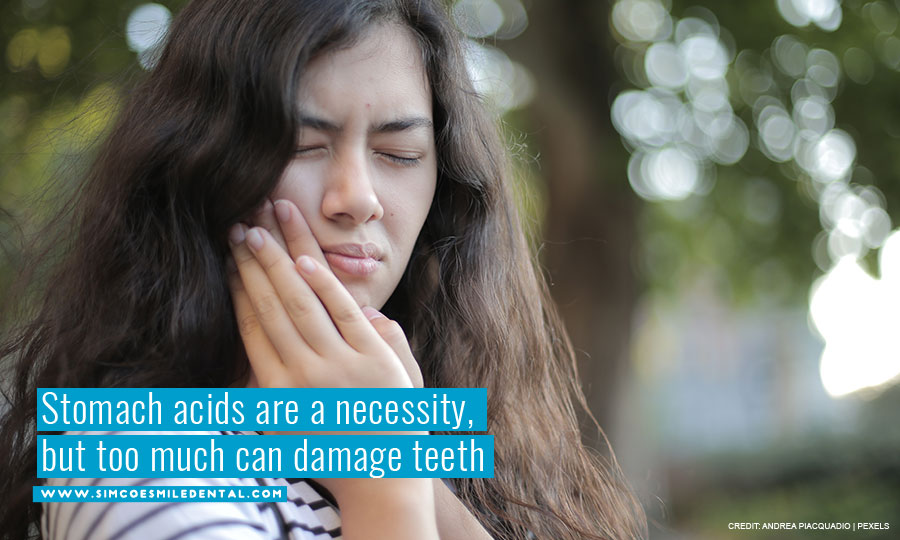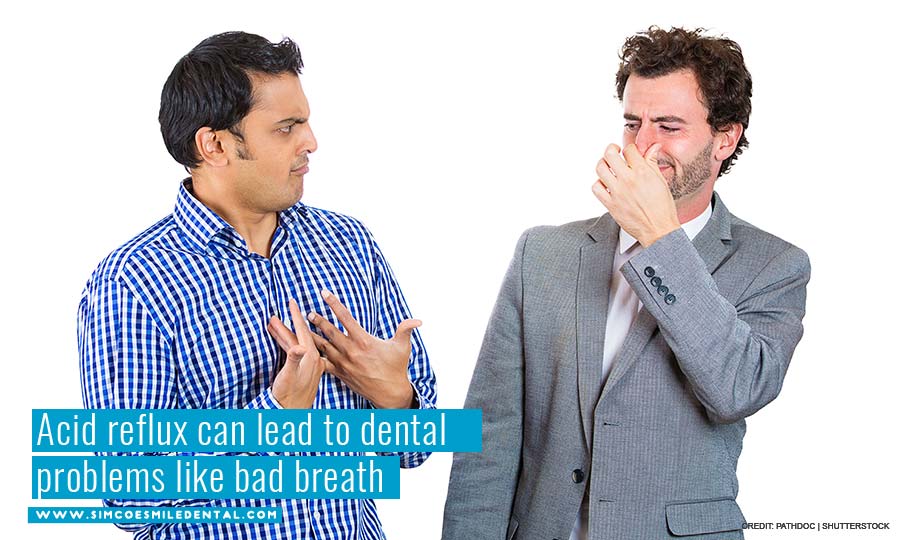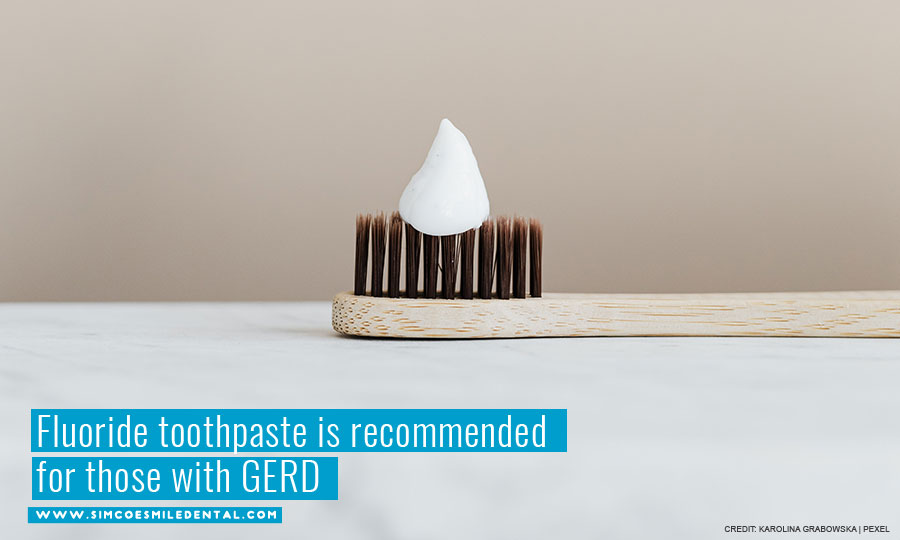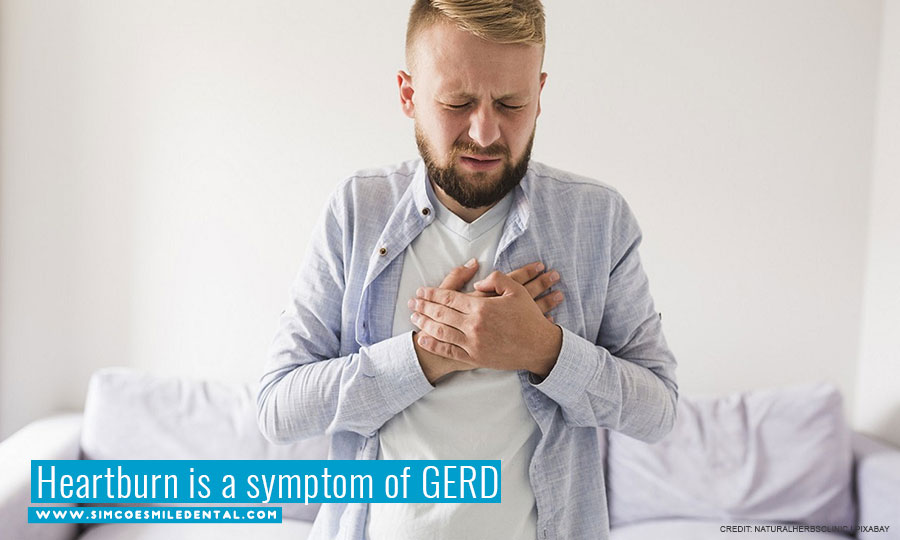Gastroesophageal reflux disease (GERD) is a common digestive disorder that can decrease the quality of life of individuals as well as impact the community. In Canada, an average of 5 million individuals experience GERD symptoms like heartburn and/or acid reflux at least once every week. This can result in employee absenteeism and lost productivity of up to $21 billion annually.
GERD also has a direct impact on other parts of the body, including your teeth. Understand how GERD can affect and make your teeth hurt and learn how to prevent acid erosion on teeth so you can maintain your oral and overall well-being.
How Do Stomach Acids Affect Teeth?
Stomach acids are natural substances that enable your body to break down and digest food for better nutrient absorption. The production of hydrochloric acid and pepsin enables the swift degradation of food molecules. However, when a person eats too much, the stomach may lack the ability to handle that amount of food and end up overcompensating. The production of too much acid will lead to acid reflux or regurgitation, which can happen after a meal or while you sleep.
This influx of stomach acid can be neutralized by your saliva, which is one of your body’s natural defenses against such attacks. However, sleep and certain GERD medications can reduce saliva production, leaving your teeth defenseless. The build-up of acid in your mouth makes it the perfect breeding ground for microbes and pathogens. This in turn will cause bad breath, cavities, tooth decay, and toothaches.
GERD (Acid Reflux) Symptoms
These warning signs may not come together at once, but they can fluctuate from time to time. With that said, you have to be extra vigilant with your body and lookout for these signs.
- Choking
- Chest pain
- Difficulty swallowing
- Wheezing
- Sore throat
- Voice hoarseness
- Post-nasal drip
- Chronic cough
- Throat clearing
If these symptoms appear, visit your primary healthcare provider so they can recommend acid reflux treatments. Consult your dentist as well, so they can offer you advice on how to protect your teeth.
How Does GERD Impact Your Teeth and Gums?
Since stomach acids are meant to break down food, they are extremely corrosive. Once they enter your mouth, they can damage your teeth and tissue, like your gums. Increased acidity in your mouth can result in oral problems like:
- Dry mouth
- Tooth decay
- Cavity formation
- Enamel erosion
- Heightened teeth sensitivity
- Bad breath (halitosis)
- Excess salivation
- Dysphagia (difficulty in swallowing)
- Gum disease
- Gum recession
Neglecting your teeth when acid reflux strikes can lead to irreversible damage. If left unchecked, you may end up needing dental implants or inlays, onlays, and crowns later on.
How Do You Prevent Acid Reflux?
To protect your teeth from the effects of GERD, you need to address acid reflux. The first thing you should do is find out what caused that particular episode in the first place. Knowing the underlying reason will allow you to better manage your condition. Now, the good thing about this is that you can prevent acid reflux on your own.
While there are a variety of over-the-counter acid reflux remedies you can turn to, you don’t have to take any special medication; all you need to do is make adjustments to some of your habits:
- Go Easy on the Diet
When you consume alcohol, pork, beef, and complex carbohydrates, your stomach has to produce extra acid to sufficiently break them down. Because this is your stomach’s natural function, it shouldn’t be a problem when done in moderation. However, regular consumption of a fatty and macro diet can have your stomach working on overdrive, leading to the overproduction of acid in short bursts of time.
This sudden increase in acid production may cause the acid to overflow into your esophagus and mouth, causing acid reflux. This can be prevented by having a balanced diet of fibre, whole grains, and fish.
For acid reflux foods to avoid, the list will depend from one person to another. Others may have better digestive tolerance and acidic capacity. But, in general, the main rule is to avoid sugary food at night, control consumption of pork, medium-rare beef cuts, alcohol, and other red and game meat.
- Regulate Acid
Stomach acid regulation is often intrinsically embedded in your digestive system. However, genetic factors and eating habits may cause hyperacidity and reflux. To maintain acid balance and pH maintenance, drink plenty of water after every meal. The water will maintain the basicity of your mouth. The frequent consumption of water can also calm the acids in your stomach. Another way to regulate stomach acids is to drink anti-inflammatory antacids after a meal.
- Eat Slowly
Eating too much food too fast may not seem like a problem. However, this can stretch your stomach’s ability to digest, and cause a variety of problems. Overeating not only results in hyperacidity and acid reflux but also presents problems like choking, increased blood pressure, and sudden blood sugar spikes.
To prevent overconsumption of beverages, especially acidic ones, use straws. This can minimize the acidic fluids you take in, making it easy for your stomach to handle.
How to Protect Teeth From Acid Reflux
While preventing acid reflux can go a long way in preserving your oral health, you should also take added measures to protect your teeth and gums:
- Practice proper dental care. Use a soft toothbrush. Wait at least an hour after a meal before brushing your teeth.
- Use fluoride-infused toothpaste or mouth rinse. This is especially important if you’re experiencing tooth sensitivity. Talk to your dentist about which toothpaste to use.
- Chew only sugar-free gum. This can reduce the amount of acid in your mouth.
- Swish your mouth with water after you eat or drink to eliminate acids from your mouth.
- Hydrate. Drinking plenty of water throughout the day, especially if you are experiencing dry mouth.
Acid Reflux vs. Heartburn
Heartburn may be caused by multiple factors, but it is usually associated with actual acid reflux. When you have chest pains while experiencing bouts of burping and uncontrolled vomiting, then you probably have GERD. However, while acid reflux and heartburn often go together, they are not interchangeable. You shouldn’t make premature assumptions since heartburn can be caused by other ailments.





